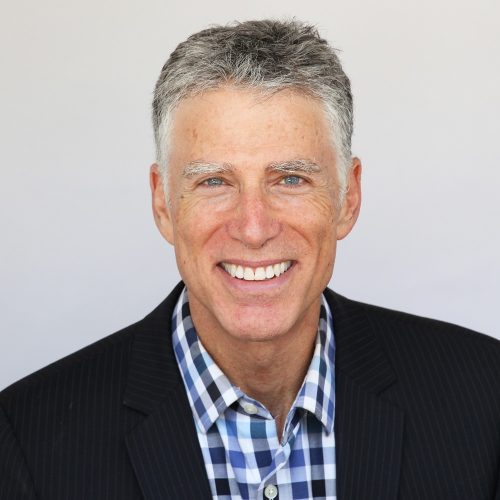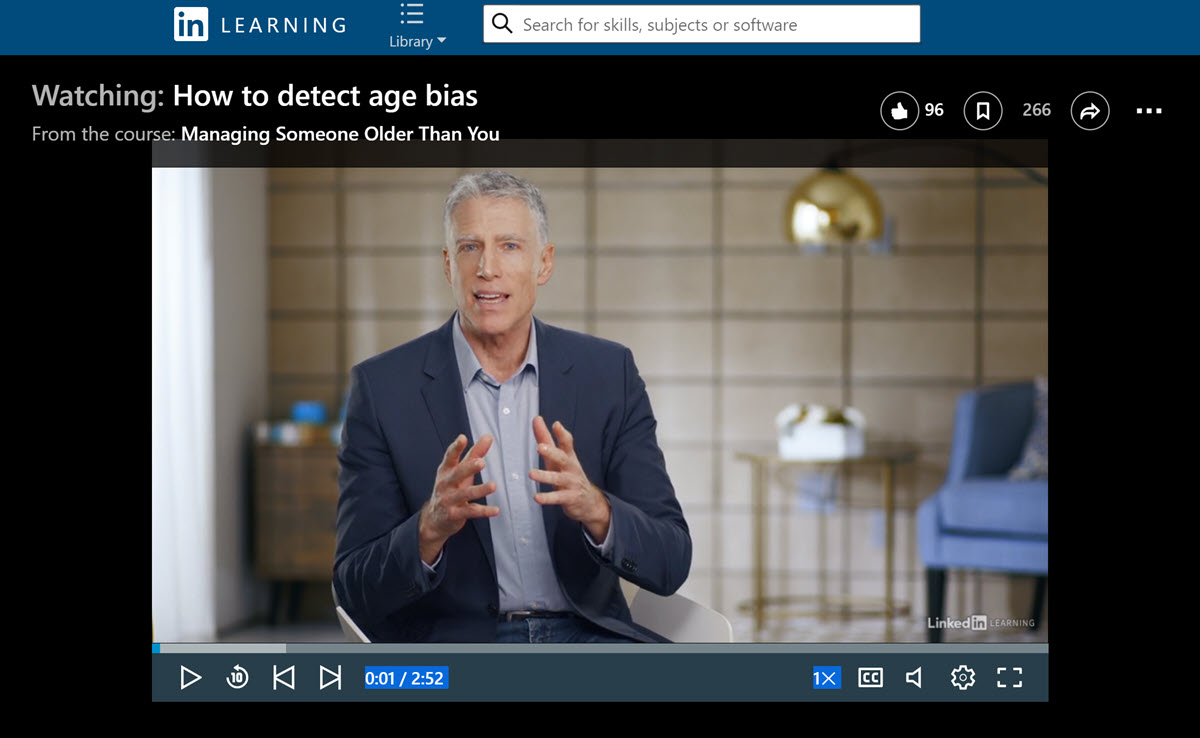If we can encourage younger managers to identify and understand the negative effects of ageism on their teams and in their organizations, we can help stop ageism in the workplace.
My New LinkedIn Course
LinkedIn approached me last year to write and record a video course to help younger managers do a better job of managing older reports. The course has now launched on the LinkedIn Learning platform (formerly Lynda.com), and I’m very excited to share it with you.
You can find it HERE on Linkedin Learning.
While the course was not designed specifically to stop ageism per se, confronting age bias was essential to the syllabus. After all, how can we expect to create harmonious and effective collaboration within a department or a working team if we allow bias and disrespect to persist?
Step By Step
The syllabus follows many of the overall principles that I use in my coaching work. After advising younger managers on ways they can address age bias, it focuses on ways that they can reframe their mindsets around older workers. It then gives them specific management tools and best practices that can increase their effectiveness in dealing with their older reports, and in integrating them with their younger teams.
These tools include an array of listening skills, empathy skills, and help in understanding some of the underlying fears or concerns that older workers often have at this stage of our careers. As many clients and readers have shared with me, suddenly being the oldest person in the room can be disorienting. Many of us grapple with updating our role, and questioning our purpose or relevance as companies pivot (sometimes awkwardly) to new models.
It’s essential for younger managers to partner with us on solving these issues. It is also in their interest to take advantage of our experience and wisdom, while also helping us to better share those assets in ways that the rest of the team will embrace. Mentoring is a big piece of this puzzle, and can become the glue that brings a multi-generational team together.

A Leadership Approach
Another aspect of the course strategy was to look for ways to encourage leadership and self-responsibility among younger managers. To do that, I first set out to defuse any communication issues between manager and report. To me, listening skills are the obvious best way to encourage communication and build rapport – but they are often overlooked.
I also believe that many younger managers feel some level of intimidation when it comes to having an older report. In some companies, an older worker (over 50) may be the only older person on the team. So the manager and the team can initially feel unsure about how to act around them.
I encourage younger managers to get ahead of this dynamic, and to pro-actively onboard and build a direct relationship with their older report. Some of this is strategic, in terms of setting goals, for example. But some of it is tactical, dealing with problems that come up as a result of potential inter-generational misunderstandings and unconscious bias. In those instances, I provide and model some conversational and behavioral tactics that a manager can use to resolve these issues.
Two-Way Responsibility
One of the important aspects of the syllabus for me was making sure that both older and younger individuals learned how to take responsibility for their attitudes and decisions. So it was important for me to call out reverse ageism as well. Older workers can be just as dismissive of younger workers- often unconsciously. Addressing both sides of the equation, I believe, actually makes it easier to bring generations together. It is the first step in getting people to step forward to help and support one another, rather than retreating to limiting beliefs and unfounded prejudices.
Outcomes
It’s still early, so I don’t have metrics on how the course is performing, but LinkedIn was pleased with the result, and has been very open with me about how well the course scored in their internal testing. So I’m hopeful that it will be able to make an impact.
It’s encouraging to me that the LinkedIn leadership is aware of and focused on the inter-generational issue., and willing to promote the multi-generational mindset on their platform. This further validates what many of us are seeing as the coming multi-generational shift in the workplace. Collaboration across generations is going to become increasingly important for all organizations to succeed in the redefined 21st century workplace.
Check It Out!
Please have a look at the course. You can find it HERE on Linkedin Learning.
If you like it, please share it with colleagues and friends who may find it helpful and strategic for younger managers in their businesses and teams.
- Do you think it’s an effective set of prescriptions that could actually help stop ageism in the workplace?
- Should LinkedIn commission the next step, which would be creating the companion course to support older workers (I’m calling it “Your Millennial Boss”)?
- What did I leave out or get wrong?
Let me know what you think!


